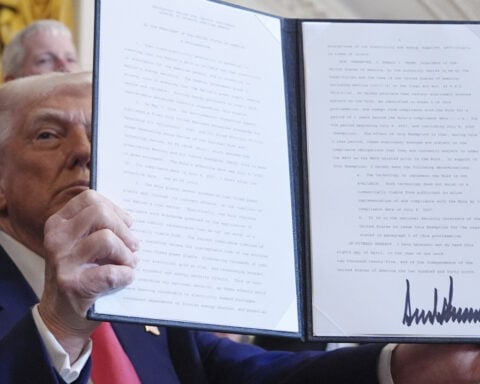"Meat is murder!" The provocative slogan rings across the urban park, held aloft on signs by a crowd of protesters. This isn't just any rally - it's a demonstration by the Radical Vegan Front, a controversial activist group striving to abolish all use of animals for food, clothing, or research. Their extreme stance and sensational tactics have earned them notoriety and disdain. But are their arguments completely without merit?
Alex, a prominent member, explains what radicalizes vegans. "We're driven by compassion for animals facing horrific cruelty in factory farms. Their suffering is needless and revolting. Society has to change its heartless mindset that animals exist merely to be exploited for our benefit."
The road to such ideological radicalization often begins with exposure to the appalling realities of modern animal agriculture through undercover investigations. Once eye-opening facts become known, Alex asserts an ethical person must act.
Fellow activists Katie and Ryan agree. Katie recounts her transformative experience volunteering at a chicken rescue sanctuary. "Seeing how each unique bird has a personality and feelings opened my heart. Now, I won't contribute to industries that treat them like objects."
Ryan's views stemmed from learning of standard egg industry practices like grinding or suffocating male chicks alive since they can't lay eggs. "The scale of needless killing shocked me," Ryan reflects. "I had to align my actions with my conscience."
These impassioned vegans embrace lifestyles, eschewing all animal products for clothes, food, or any purpose. Some take it further by avoiding honey or advocating for animal rights. Their commitment reflects strong ethical values. But are their extreme stances justified? Philosophy professor Peter Jones offers insights. "Any social reform movement needs radicals pushing boundaries at the vanguard. But moral crusades also need more moderate voices to build mainstream bridges."
He acknowledges animal welfare merits concerns but cautions against absolutism. "Vegan activists provide an important counterpoint to status quo assumptions. However, demonizing all animal use as 'murder' may not persuade the average citizen.
Sociologist Alicia Delos, who publishes on food politics, adds: "Radical elements keep issues from being ignored. But most people don't respond well to aggression or demands for purity. Social movements succeed through pluralism, empathy, and nuance." These observations ring true at another vegan march where strident slogans create an us-vs-them trench warfare mentality. Passersby seems more alienated than sympathetic. Radicalism risks undermining its cause.
Some vegan activists have moderated approaches with campaigns like "Meatless Mondays" - encouraging small steps rather than mandating perfection. This pragmatic tack makes compassionate living more accessible.
Sustainable farmer Maya Santos reflects on transitioning her family cattle ranch to plant-based agriculture after learning of intensive feedlot conditions from vegetarian friends. "I believe in humane stewardship of animals," Santos says. "But for me and many others, completely renouncing animal products as 'unethical' goes too far. We opt for conscientious middle-ground choices."
Finding mutual understanding is the aim of "bridge builders" like vegetarian chef Travis Campbell. At his restaurant Antler, an improbable hotspot among vegans and hunters alike, Campbell wants to heal divides. "Sharing fantastic plant-based dishes helps folks with different views realize we have common hopes," Campbell declares.
Public opinion, though ambivalent, shows signs of incremental evolution. Surveys indicate around 5% of Americans now identify as vegetarian, with vegan rates doubling over the past decade. Meat consumption has also declined.
Are radical vegans ultimately tilting at windmills in seeking to convert meat-loving societies wholly? Philosopher Peter Jones asserts reform arises gradually. "Lasting change comes through awakening hearts and perspectives, not conquering them," he observes sagely.
The verdict is whether radical vegan tactics will spur massive dietary transformations and animal rights laws. But by spotlighting pressing yet uncomfortable issues, uncompromising activists keep complacency at bay and give voice to noble aims. Their dedication stands to push society, if only by degrees, toward epitomizing humanity's highest principles of compassion.

 Trump has begun another trade war. Here's a timeline of how we got here
Trump has begun another trade war. Here's a timeline of how we got here
 Canada's leader laments lost friendship with US in town that sheltered stranded Americans after 9/11
Canada's leader laments lost friendship with US in town that sheltered stranded Americans after 9/11
 Chinese EV giant BYD's fourth-quarter profit leaps 73%
Chinese EV giant BYD's fourth-quarter profit leaps 73%
 You're an American in another land? Prepare to talk about the why and how of Trump 2.0
You're an American in another land? Prepare to talk about the why and how of Trump 2.0
 Chalk talk: Star power, top teams and No. 5 seeds headline the women's March Madness Sweet 16
Chalk talk: Star power, top teams and No. 5 seeds headline the women's March Madness Sweet 16
 Purdue returns to Sweet 16 with 76-62 win over McNeese in March Madness
Purdue returns to Sweet 16 with 76-62 win over McNeese in March Madness








